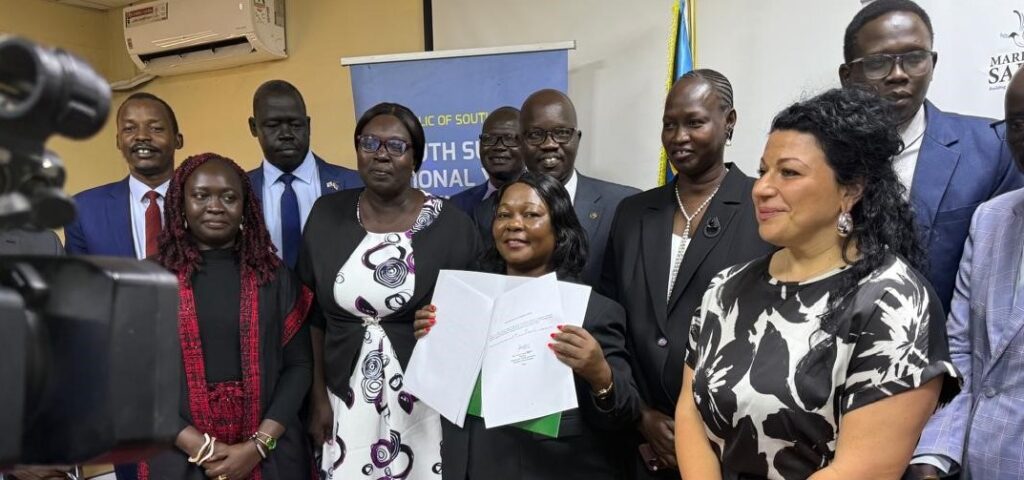South Sudan’s government has officially signed its first National Youth Development Policy and National Sports Policy, ending 14 years of deliberations and advocacy aimed at empowering the country’s young majority.
The signing follows the recent passage of the Youth Bill by Parliament, paving the way for frameworks designed to increase youth participation in national governance and expand access to athletic programs across the country’s 10 states and three administrative areas.
Minister of Youth and Sports Mary Nawai Martin said during the signing ceremony on Thursday in Juba that the documents represent a renewed national commitment to a population often sidelined by conflict and economic instability.
Martin noted that while a youthful population is often viewed as a challenge, it remains the country’s greatest opportunity when young people are provided with the tools to become innovators and peacebuilders.
The minister warned that failing to implement these policies could exacerbate unemployment and national instability. To address these risks, the new frameworks introduce several structural changes, including a proposal to earmark 10% of the ministry’s budget specifically for sports development.
Martin also called for the establishment of “youth desks” within every government ministry to ensure that young people’s interests are integrated into all sectors of public policy, from education to peacebuilding.
In addition to administrative changes, the policies emphasize social cohesion. Martin urged sports federations to uphold professionalism and inclusivity, stressing that national teams should reflect the diversity of all 64 tribes in South Sudan. She highlighted that sports can stimulate local economies by creating jobs for coaches, administrators, and event organizers while simultaneously building national pride.
While the policies provide a roadmap for education, entrepreneurship, and civic engagement, advocates say the real test lies in execution. For years, South Sudanese sports have languished due to a lack of infrastructure and a reliance on inconsistent government funding. The minister encouraged innovative financing models, such as public-private partnerships and diaspora engagement, to bridge the funding gap.
Florence Agiba, executive director of the civil society group Markaz Al Salam, welcomed the move but noted that the country’s youth still face massive hurdles. Agiba said the signing signals a clear national commitment to place young people at the center of development, yet she emphasized that the real success of the policies will depend entirely on their implementation.
Agiba added that civil society organizations are now waiting for the presentation of the Youth Bodies Bill, which would create formal institutional structures for youth representation.
“The future of South Sudan will be defined by the choices we make today regarding our youth,” Agiba said. She congratulated the ministry, lawmakers, and the various organizations and young people who helped shape the policies.
The initiative received support from various development partners, including Norwegian People’s Aid (NPA), which helped facilitate the civic participation initiatives leading up to the policy’s adoption.




